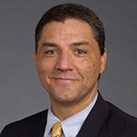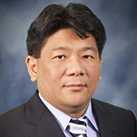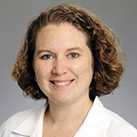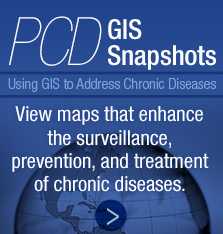
Associate Editors
Lawrence Barker, PhD
Senior Advisor
Office of the Associate Director for Science
National Center for Chronic Disease Prevention and Health Promotion
Centers for Disease Control and Prevention
Atlanta, Georgia

Dr. Barker has been with CDC since 1998. He was worked in the National Immunization Program (Data Management Division), the National Center for Injury Prevention in the Division of Violence Prevention, and the NCCDPHP (Division of Diabetes Translation, Division of Community Health, and Office of the Director). Prior to coming to CDC, Dr. Barker worked for the US Department of Energy in Las Vegas, Nevada, and the executive branch in Washington, DC, taught mathematics at the University of Tennessee in Knoxville, Tennessee, and served as visiting faculty at the Department of Statistics at Florida State University in Tallahassee, Florida. Dr. Barker was a winner in CDC’s 2010 Statistical Sciences Award and a runner-up in 2012, 2010, 2005, and 2004. He has authored or co-authored more than 100 peer-reviewed articles. In addition, he served on the editorial board of the American Journal of Clinical Nutrition and as a guest editor of PCD and Injury Prevention. Dr. Barker received his doctoral and master’s degrees in statistics from Florida State University.
Appointment Term: 2016–2019
Ronny A. Bell, PhD, MS
Professor and Chair
Department of Public Health
East Carolina University School of Medicine
Greenville, North Carolina

Dr. Bell is Professor with tenure of Public Health Sciences (Department of Epidemiology and Prevention) at the Wake Forest School of Medicine in Winston-Salem, North Carolina. He is also Director of the Maya Angelou Center for Health Equity at Wake Forest, a designated Center of Excellence with the National Institute on Minority Health and Health Disparities. In November 2016, he will assume the position of Professor and Chair of the Department of Public Health at East Carolina University. Dr. Bell currently serves as the Chair of the North Carolina Diabetes Advisory Council and the North Carolina American Indian Health Board. He also serves on the American Diabetes Association Health Disparities Committee. Dr. Bell received his master’s and doctoral degrees in nutrition at the University of North Carolina at Greensboro and his master’s in epidemiology at the Wake Forest School of Medicine. He completed a postdoctoral fellowship in gerontology at Wake Forest before joining the faculty in 1996.
Appointment Term: 2016–2020
Michele Casper, PhD
Epidemiologist
Division for Heart Disease and Stroke Prevention
National Center for Chronic Disease Prevention and Health Promotion
Centers for Disease Control and Prevention
Atlanta, Georgia

Dr. Casper is the Team Lead for the Small Area Analysis Team within the Division for Heart Disease and Stroke Prevention at CDC. The activities of her team include: the Interactive Atlas of Heart Disease and Stroke, the GIS Capacity Building Project for State and Local Health Departments, The Chronic Disease GIS Exchange, and the study of spatio-temporal trends in heart disease and stroke. She is interested in reducing the geographic disparities in heart disease and stroke and using local-level data to tailor heart disease and stroke prevention efforts to the specific needs of communities. Michele received her doctorate in epidemiology from the University of North Carolina.
Appointment Term: 2014-2017
Timothy J. Cunningham, ScD, SM
Commander, US Public Health Service
Division of Population Health
Centers for Disease Control and Prevention
Atlanta, Georgia

Dr. Cunningham joined CDC in 2010 as part of its Epidemic Intelligence Service and worked in the Division of Reproductive Health. Currently, as the Team Lead for the State Chronic Disease Epidemiology Assignee Program in the Division for Population Health, he supervises CDC epidemiologists assigned to state health departments and supports state chronic disease prevention activities. His research is oriented toward understanding health differences related to race/ethnicity, socioeconomic status, sex, and geography. He has held leadership positions with the American Public Health Association and the Atlanta Branch of the Commissioned Officers Association of the US Public Health Service. He received an ScD and SM from the Harvard T.H. Chan School of Public Health and a BS from Morehouse College.
Appointment Term: 2017–2020
Paul Estabrooks, PhD
Harold M. Maurer Distinguished Chair
College of Public Health | Department of Health Promotion, Social & Behavioral Health
University of Nebraska Medical Center
Omaha, Nebraska

Dr. Estabrooks is the Harold M. Maurer Distinguished Chair and Professor in the Department of Health, Promotions, Social & Behavioral Health at the University of Nebraska Medical Center in Omaha, NE. Dr. Estabrooks work focuses on testing innovative physical activity, nutrition, and weight control programs, policies, and practice interventions that can be adopted in schools, workplaces, and healthcare clinics. Dr. Estabrooks also studies health promotion initiatives that can be implemented and sustained in typical community and clinical settings, at a reasonable cost—with a focus on achieving health equity. Dr. Estabrooks is the author of nearly 200 publications, mostly focusing on how best to integrate evidence-based practice into typical community in clinical settings.
Appointment Term: 2017–2020
Tiffany Gary-Webb, PhD, MPH
Associate Professor
Departments of Behavioral and Community Sciences and Epidemiology
Graduate School of Public Health
University of Pittsburgh
Pittsburgh, Pennsylvania

Dr. Gary-Webb is Associate Professor in the Departments of Behavioral and Community Health Sciences and Epidemiology at the University of Pittsburgh, Graduate School of Public Health. She has held faculty positions at several other top-tiered schools of public health including the Columbia University Mailman School of Public Health and the Johns Hopkins Bloomberg School of Public Health. Her current research agenda is the culmination of 16 years of experience working to understand the social and environmental determinants of chronic disease and implementing interventions to improve prevention and control. Her areas of research are divided into three defined areas: 1) the social determinants of diabetes and obesity, 2) interventions to improve diabetes outcomes for minority populations, and 3) translation of research findings to practice and real-world evaluation. She has held leadership positions in several national organizations including the American Diabetes Association, the American Public Health Association, and the African American Collaborative Obesity Research Network. She completed her doctorate and master’s degrees in clinical epidemiology from Johns Hopkins School of Hygiene and Public Health. She completed a postdoctoral fellowship at CDC.
Appointment Term: 2016–2019
Sandra Hayes, DrPH, MPH, MCS
Executive Director
George A. and Ruth B. Owens Health and Wellness Center
Tougaloo College
Tougaloo, Mississippi

Dr. Hayes serves as the Executive Director for the George A. and Ruth B. Owens Health and Wellness Center at Tougaloo College. Dr. Hayes serves as principal investigator for several community-based research projects that examine the influence of social determinants on health outcomes. Dr. Hayes’s research interests explore health disparities related to the social determinants of health, development of infectious and chronic diseases (HIV/AIDS, tuberculosis, diabetes, and asthma). Dr. Hayes serves on the Mississippi Medical Association’s Commission for Health Equity, Alcorn State University’s Agricultural Research Center steering committee, Mississippi Center for Clinical and Translational Research steering committee, and the Community Research Fellows Training Program steering committee. Dr. Hayes holds a master of combined science degree in biology from Mississippi College. She holds doctorate and master’s degrees in epidemiology from the Jackson State University School of Public Health.
Appointment Term: 2016–2019
Youlian Liao, MD
Senior Epidemiologist
Division of Community Health
National Center for Chronic Disease Prevention and Health Promotion
Centers for Disease Control and Prevention
Atlanta, Georgia

Dr. Liao is a Senior Epidemiologist in the Division of Population Health, National Center for Chronic Disease Prevention and Health Promotion at CDC. He serves as a subject matter expert in conducting epidemiological research studies examining cause and patterns of health and illness status in populations. Dr. Liao’s research has contributed to CDC’s ability to plan and evaluate strategies to prevent chronic diseases. Dr. Liao has considerable expertise in the formulation of community interventions, clinical trials, and observational studies. He has served as Deputy Associate Director for Science in the Division of Adult and Community Health at CDC. Prior to joining CDC, Dr. Liao served as Professor in the Department of Biometry and Epidemiology at the Medical University of South Carolina. He completed his MD at the Zhong Shan Medical College in the Republic of China and his postdoctoral fellowship in cardiovascular epidemiology and preventive cardiology at Northwestern University Medical School.
Appointment Term: 2016-2017
Sarah L. Martin, PhD, MS
Assistant Professor of Social and Administrative Sciences
Department of Basic Pharmaceutical Sciences
Husson University School of Pharmacy
Bangor, Maine

Dr. Martin joined the Husson University School of Pharmacy as an assistant professor of Social and Administrative Sciences in 2013. Prior to joining the School of Pharmacy, she was adjunct professor of epidemiology at Husson University in the School of Science and Humanities. She has more than 25 years of experience in public health. She was a health scientist for CDC, and she taught research-related courses at the University of Maine at Farmington and Morehead State University. Dr. Martin has authored more than 50 peer-reviewed articles and serves as a reviewer for several health-related journals. Her research focuses on substance use disorders, health equity, and the assessment of pharmaceutical needs in rural settings in the midst of the changing health care environment. She received an AB from Brown University, an MS from the University of New Mexico, and a PhD from the Arnold School of Public Health at the University of South Carolina.
Appointment Term: 2017-2019
Qaiser Mukhtar, PhD, MSc
Health Scientist
Division of Nutrition, Physical Activity and Obesity
National Center for Chronic Disease Prevention and Health Promotion
Centers for Disease Control and Prevention
Atlanta, Georgia

Dr. Mukhtar leads efforts at CDC’s Division of Nutrition, Physical Activity, and Obesity to increase physical activity in American worksites through scientific translation, consultation, and partnership. She came to CDC from the New Mexico State Department of Health, where she was the hantavirus epidemiologist and led a community-based diabetes primary prevention research study assessing the association between Acanthosis nigricans and hyperinsulinemia among middle-school students. At CDC, she has served in several key leadership roles: in the Community Guide Branch, the Applied Research and Translation Team at the Division for Heart Disease and Stroke Prevention, and the Applied Research and Evaluation Team at the Division for Diabetes Translation. Dr. Mukhtar received a BSc and an MSc from the University of Karachi, Pakistan, and a PhD from the University of South Carolina.
Appointment Term: 2017-2019
James M. Peacock, PhD, MPH
Epidemiologist
Cardiovascular Health Unit
Minnesota Department of Health
St. Paul, Minnesota

Dr. Peacock monitors state and local trends in cardiovascular disease, stroke, and peripheral vascular disease and associated risk factors by using diverse data sources. He is especially interested in the use of geographic information systems to describe chronic diseases, risk factors, access to health care resources, and the provision of health care services by geographic distribution, to better identify the needs of local communities. He received a PhD and an MPH from the University of Minnesota, and a bachelor’s degree from Earlham College.
Appointment Term: 2017-2020
Mark Rivera, PhD, MA
Health Scientist
Centers for Disease Control and Prevention
National Center for Chronic Disease Prevention and Health Promotion
Division for Heart Disease and Stroke Prevention
Applied Research and Evaluation Branch
Atlanta, Georgia

Prior to joining CDC in 2004, Dr. Rivera conducted evaluation studies and developed performance measurement tools at Georgia State University’s Andrew Young School of Policy Studies. He has served in several posts in the Atlanta-area Evaluation Association and as an associate editor for Health Promotion Practice. Dr. Rivera provides technical assistance and training on evaluation and performance monitoring to CDC staff members and CDC’s state and community program award recipients. He works closely with awardees to assess and document program implementation and the degree to which programs reach their intended participants. He is particularly interested in the use of implementation evaluation to better understand how outcomes are best achieved in various contexts. Dr. Rivera received a BA from George Mason University and an MA and PhD from DePaul University.
Appointment Term: 2017–2020
Mark A. Strand, PhD, MS
Professor
College of Health Professions
North Dakota State University
Fargo, North Dakota

Dr. Strand teaches courses in epidemiology, prevention and management of chronic illness, and global health in the Master of Public Health Program; he also teaches a course in public health for pharmacists in the School of Pharmacy. He received a CPH (Certified in Public Health) credential from the National Board of Public Health Examiners and a certificate in Diabetes Management from the International Diabetes Federation. Dr. Strand has authored more than 50 peer-reviewed articles, with primary research in diabetes prevention and management, evaluation of the Diabetes Prevention Program, comorbid diabetes and depression, metabolic syndrome, and public health education in pharmacy. He completed a trial evaluating the efficacy of the Diabetes Prevention Program in China and is fluent in Mandarin Chinese. In 2016 Dr. Strand earned the College of Health Professions Dean’s Award for Excellence in Research and in 2014 was awarded the North Dakota Rural Health Educator/Mentor of the Year. He is also a section councilor in the International Health Section of the American Public Health Association. He received a BA from Luther College, an MS from the University of Minnesota, and a PhD from the University of Colorado at Denver.
Appointment Term: 2017-2020
Tung-Sung Tseng, PhD, MPH
Associate Professor
Behavioral and Community Health Sciences Department
School of Public Health
Louisiana State University Health Sciences Center
New Orleans, Louisiana

Dr. Tseng is Associate Professor in Behavioral and Community Health Sciences at the School of Public Health, Louisiana State University (LSU) Health Sciences Center in New Orleans. Dr. Tseng is a Certified Health Education Specialist/Master Certified Health Education Specialist and co-chairs the Ethics Committee of the Society for Public Health Education. He is a senior behavioral scientist and lead evaluator of the Tobacco Control Initiative, a multi-disciplinary program that specializes in helping tobacco users quit, in part by offering free or low-cost tobacco treatment services to all Louisiana public hospital patients and employees and the communities that the hospitals serve. He also serves as a member of Design and Analysis Core, Health Care Effectiveness, LSU Health Care Services Division and Stanley S. Scott Cancer Center. His primary research interests include tobacco control, childhood obesity, gene–environment interaction, risk behavioral patterns, health promotion interventions and evaluations, health disparities, and cancer prevention among ethnic minorities and under served populations. He holds a doctorate in community health and a master’s degree in health policy and health behavior from the Institute of Health Policy at the National Taiwan University.
Appointment Term: 2016–2020
Adam S. Vaughan, PhD, MPH, MS
Epidemiologist
Small Area Analysis Team
Division for Heart Disease and Stroke Prevention
Centers for Disease Control and Prevention
Atlanta, Georgia

Dr. Vaughan’s research focuses on geographic disparities in heart disease and stroke to better understand contributing community factors for the purpose of tailoring local interventions. He also works with the GIS Capacity Building Project, which trains state and local health departments on the use and application of geographic information systems. Dr. Vaughan received a PhD and an MPH from Emory University, an MS from University of Texas Southwestern Medical Center, and a BE from Vanderbilt University.
Appointment Term: 2017–2019
Camille Vaughan, MD, MS
Associate Section Chief for Research in Geriatrics and Gerontology
Emory School of Medicine
Atlanta, Georgia

Dr. Vaughan is a geriatrician and Associate Section Chief for Research in Geriatrics and Gerontology at Emory University. Dr. Vaughan also serves as Atlanta site director for Clinical Programs in the Birmingham/Atlanta Geriatric Research Education and Clinical Center at the Atlanta VA Medical Center. Dr. Vaughan’s research focuses on optimizing the care of adults with multiple chronic conditions. Specifically, she has expertise in the study of lower urinary tract symptoms among older adults, including those living with Parkinson’s disease. She joined the PCD editorial team in October 2013. She completed her doctor of medicine and a master’s degree in Clinical Research at Emory University.
Appointment Term: 2016–2020
The opinions expressed by authors contributing to this journal do not necessarily reflect the opinions of the U.S. Department of Health and Human Services, the Public Health Service, the Centers for Disease Control and Prevention, or the authors' affiliated institutions.
- Page last reviewed: October 3, 2017
- Page last updated: October 3, 2017
- Content source:
- Maintained By:



 ShareCompartir
ShareCompartir